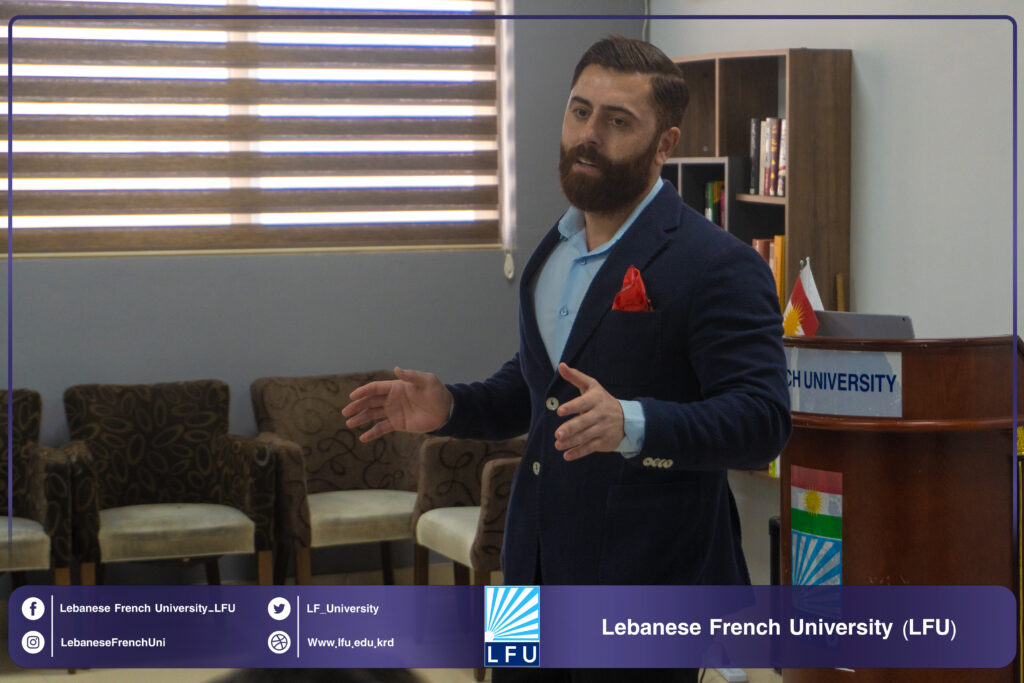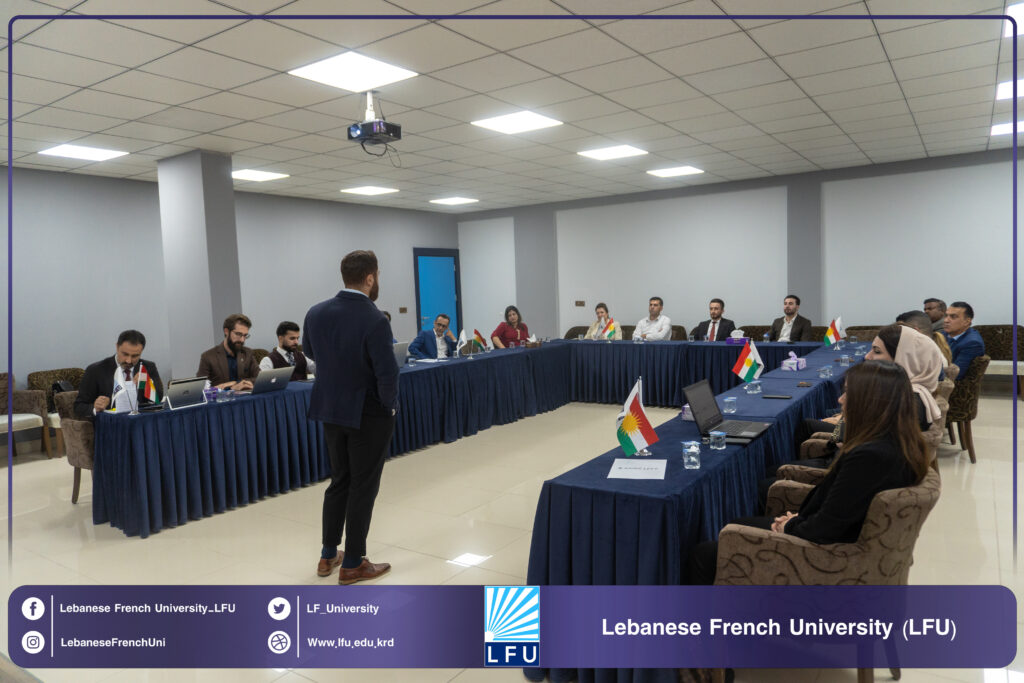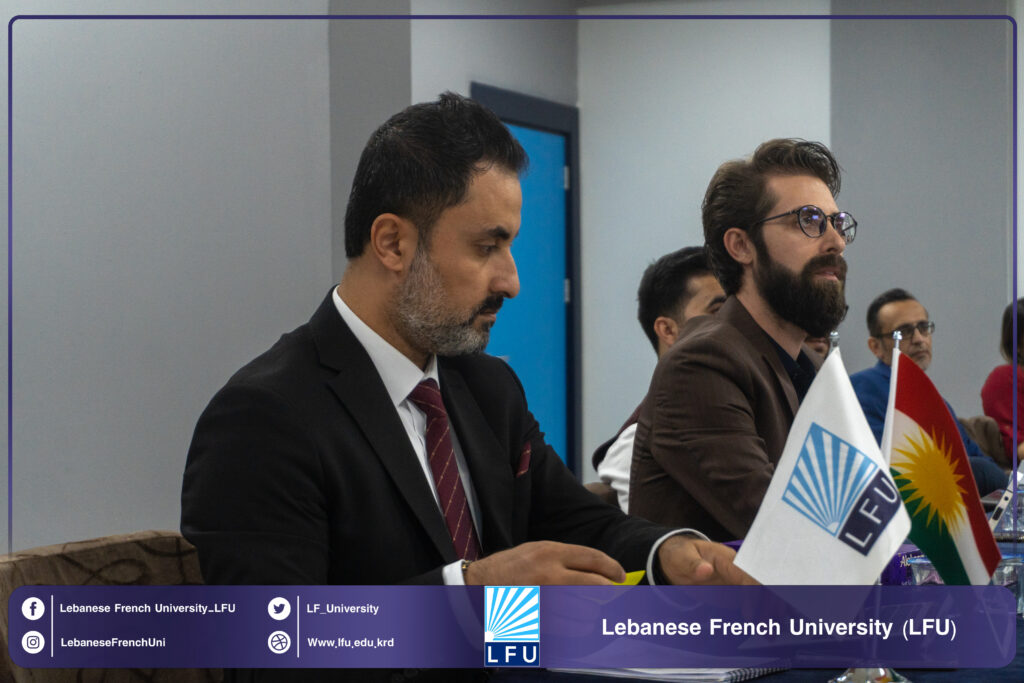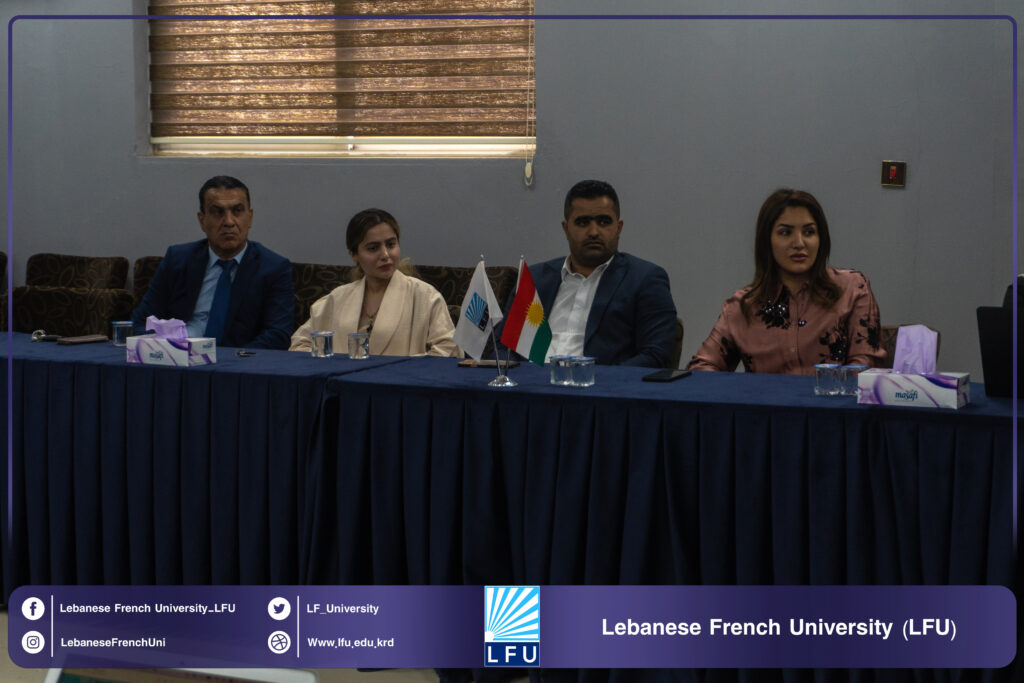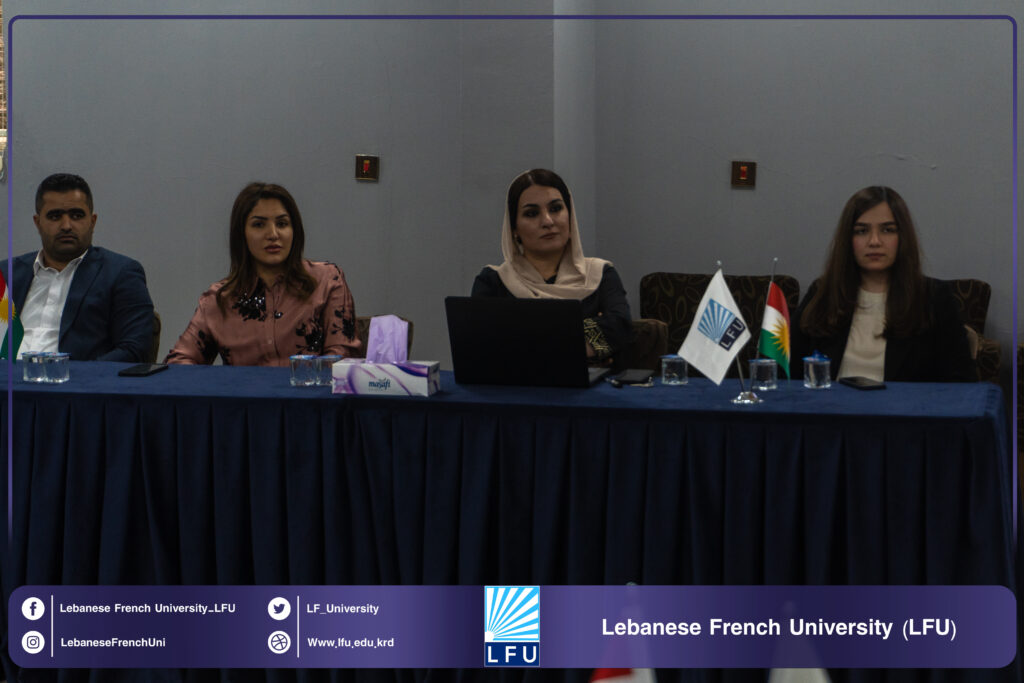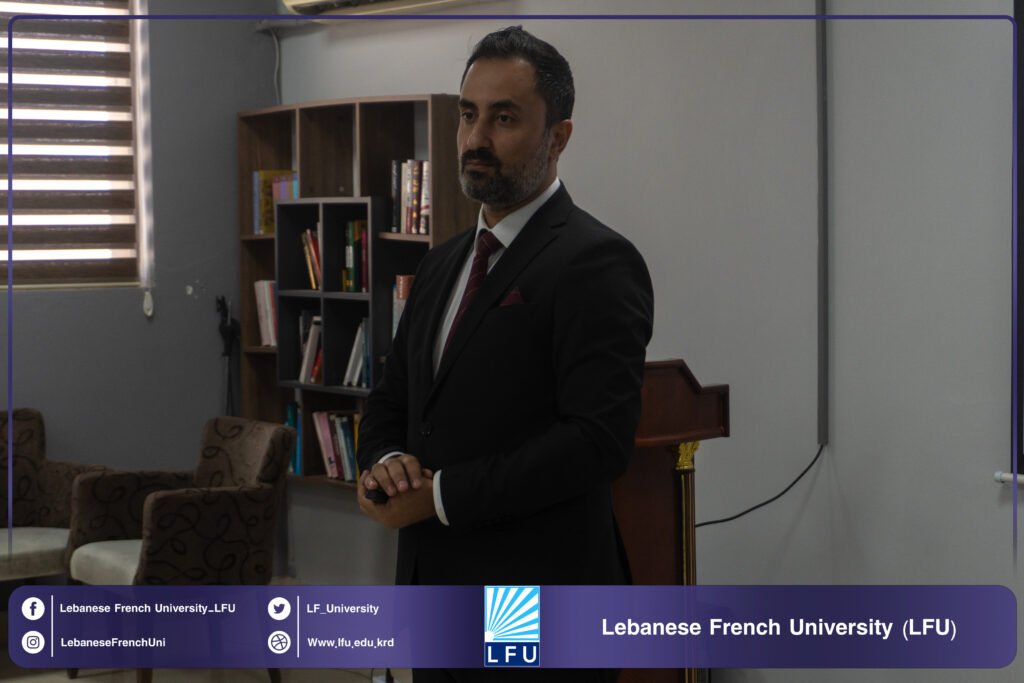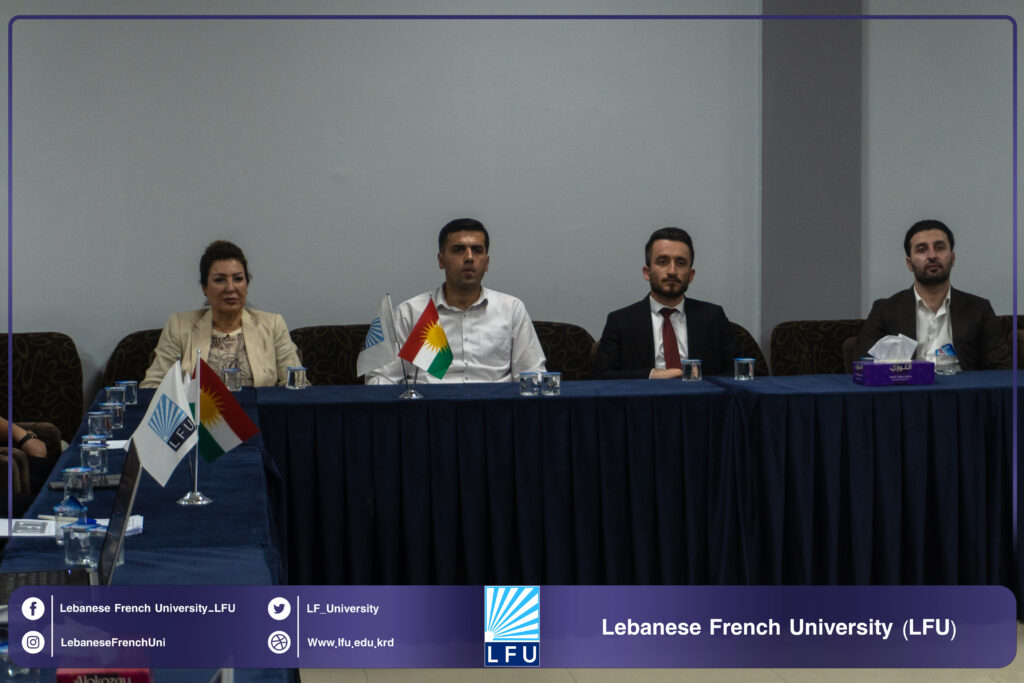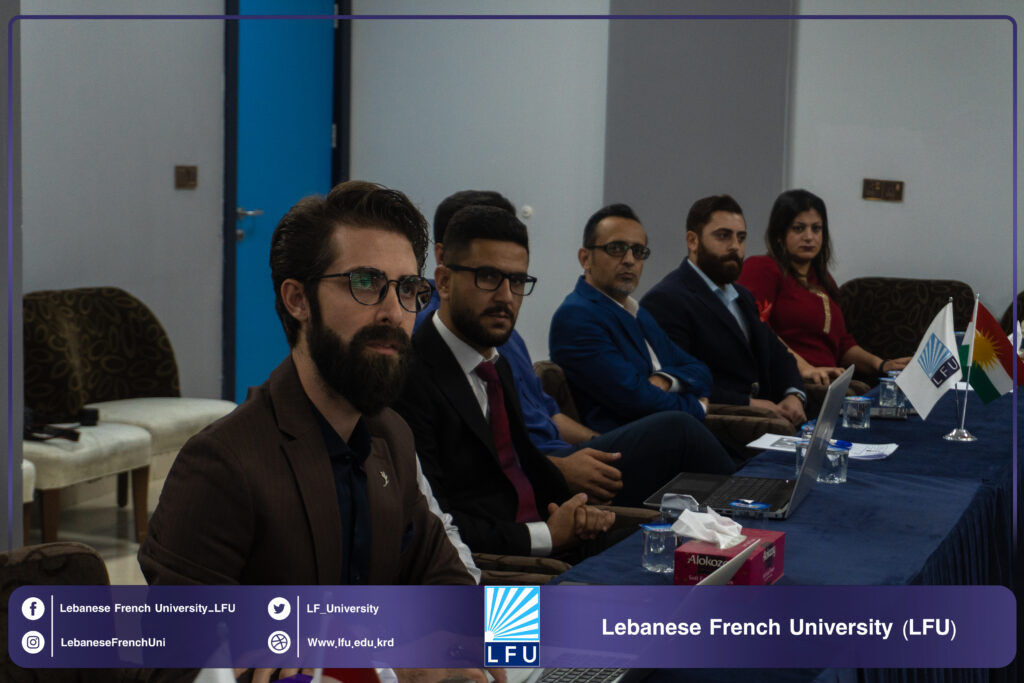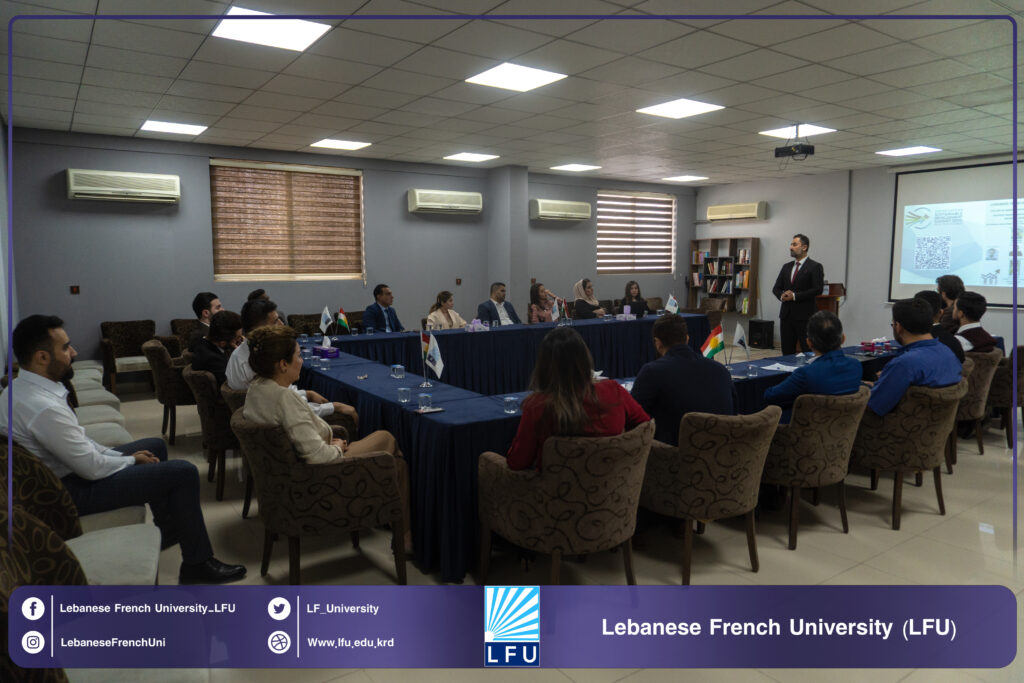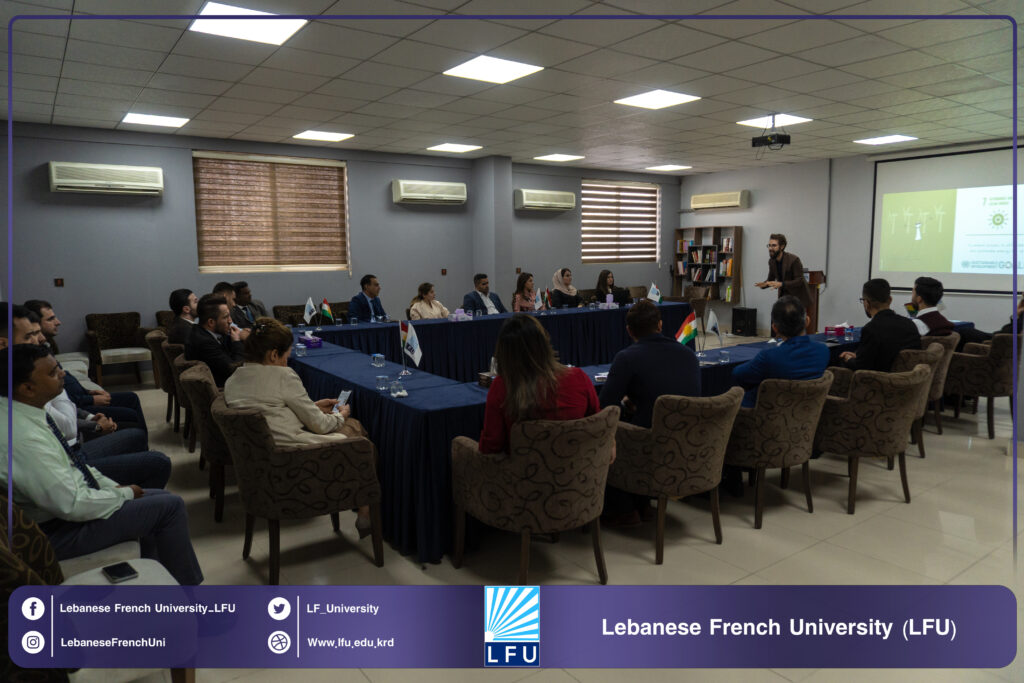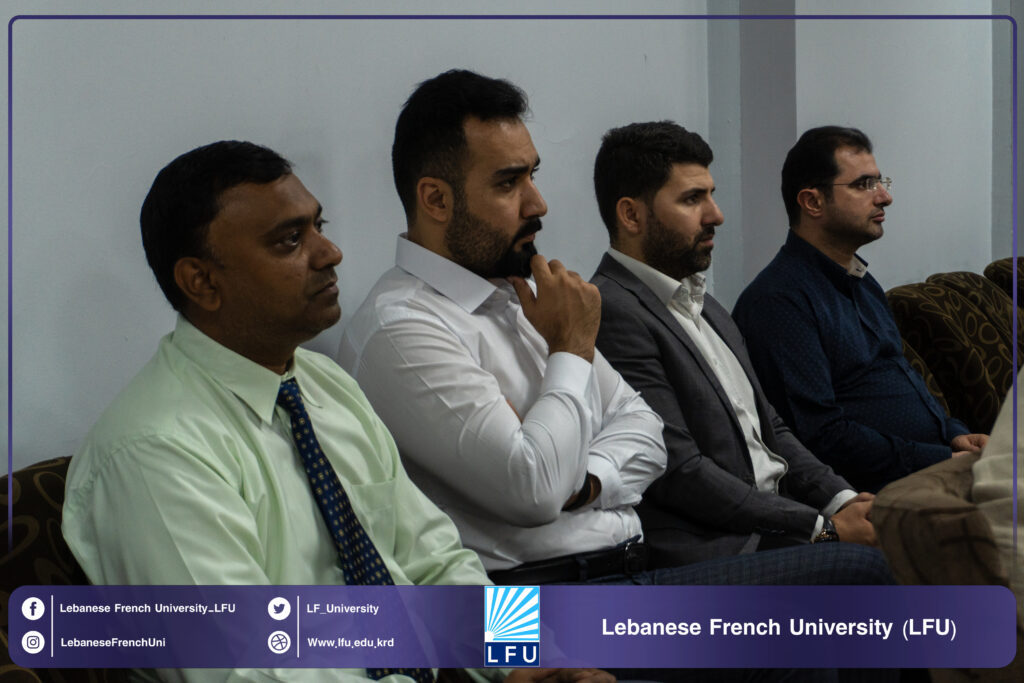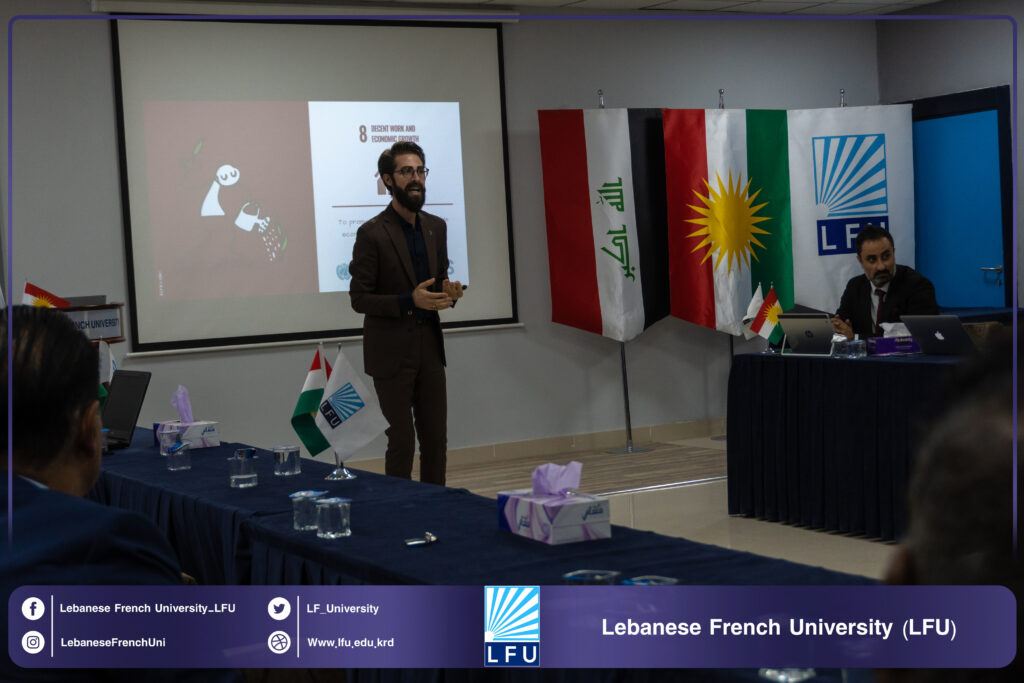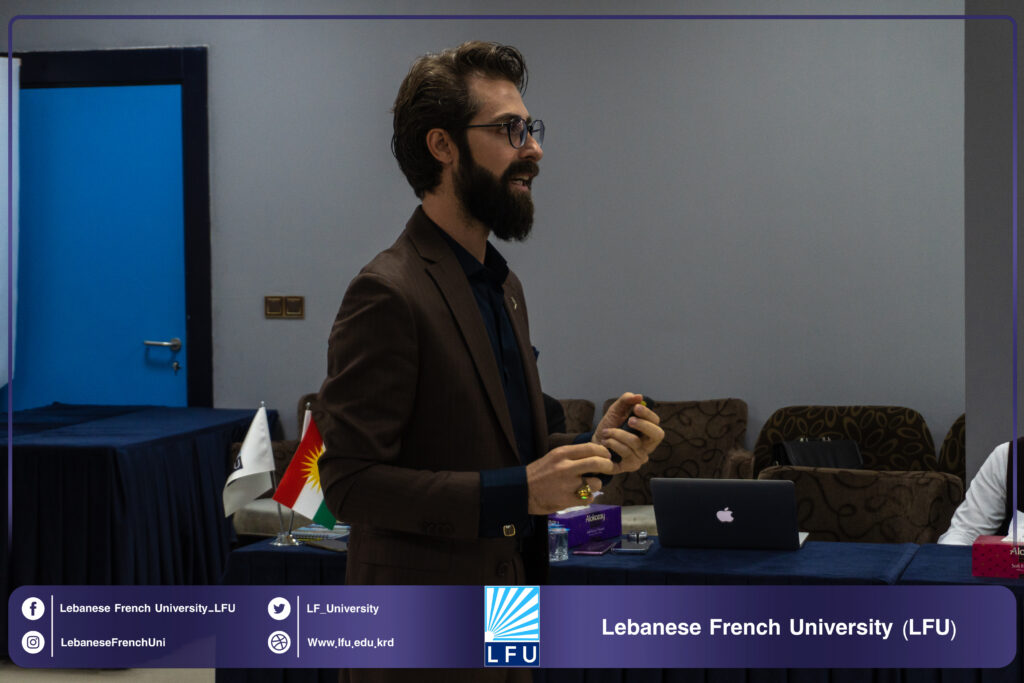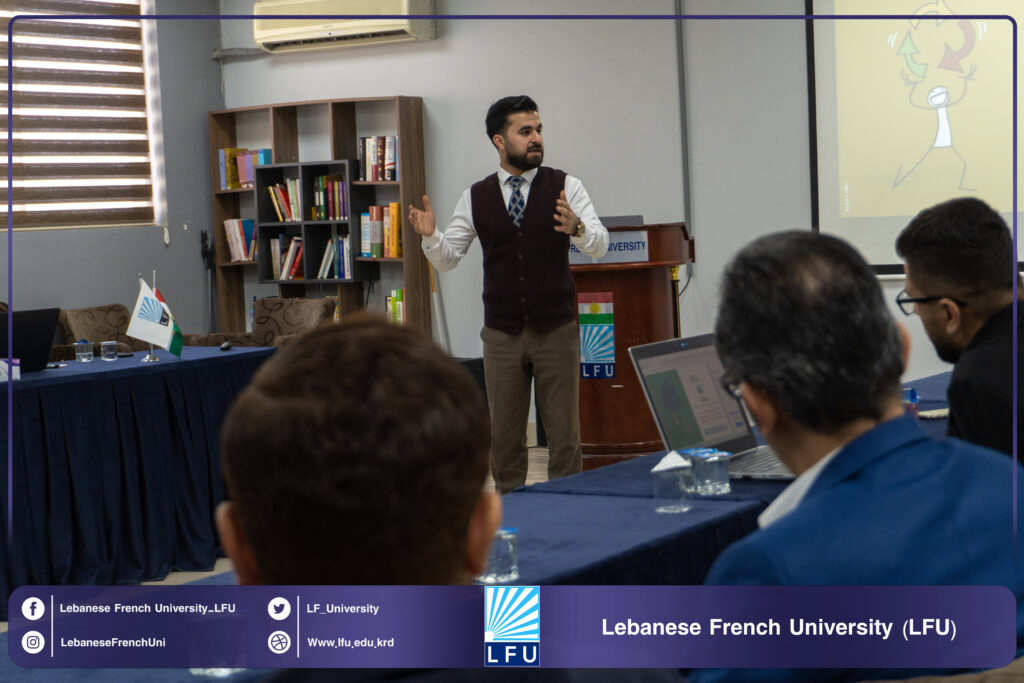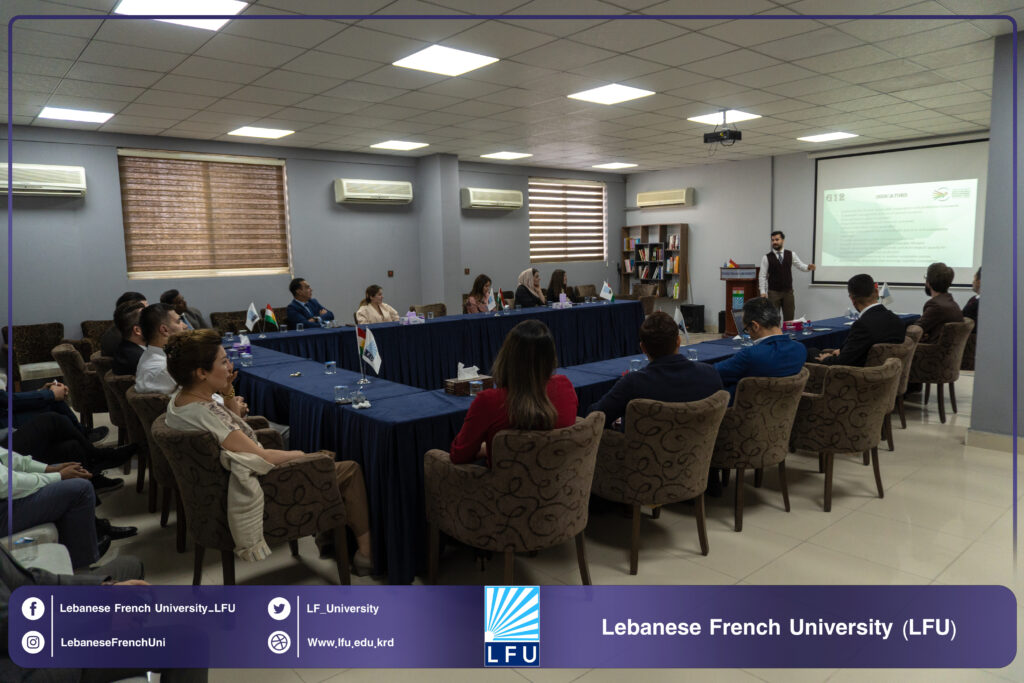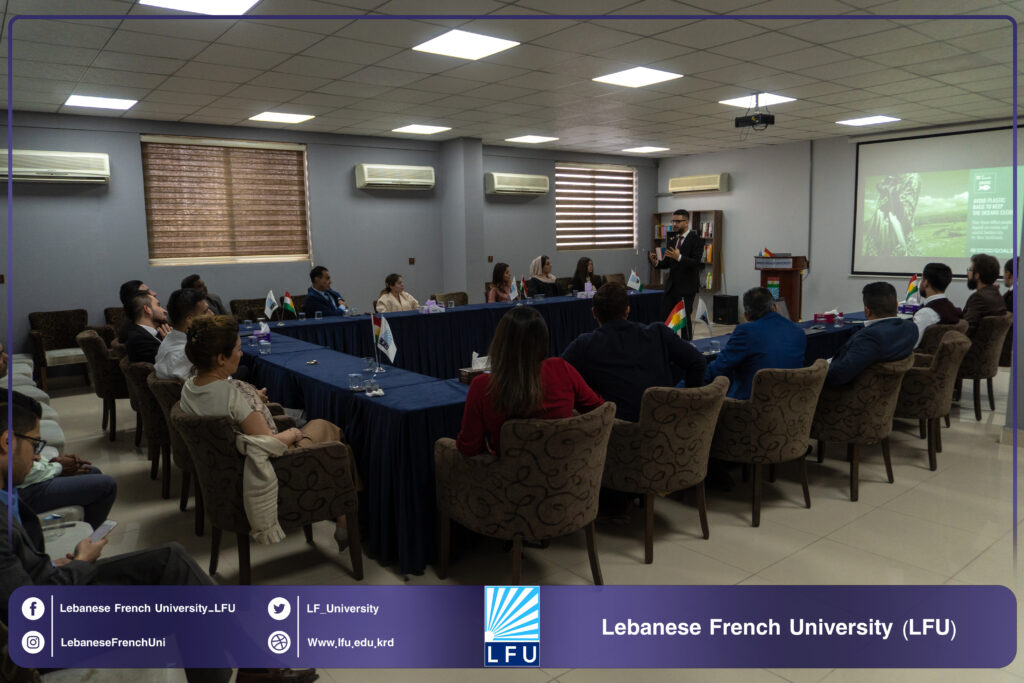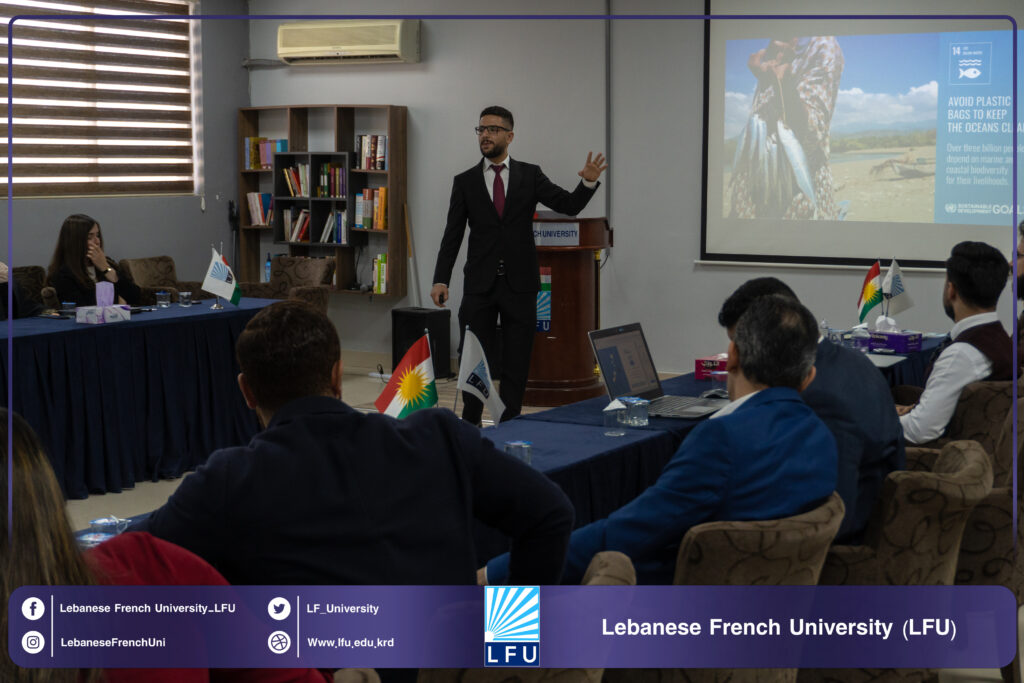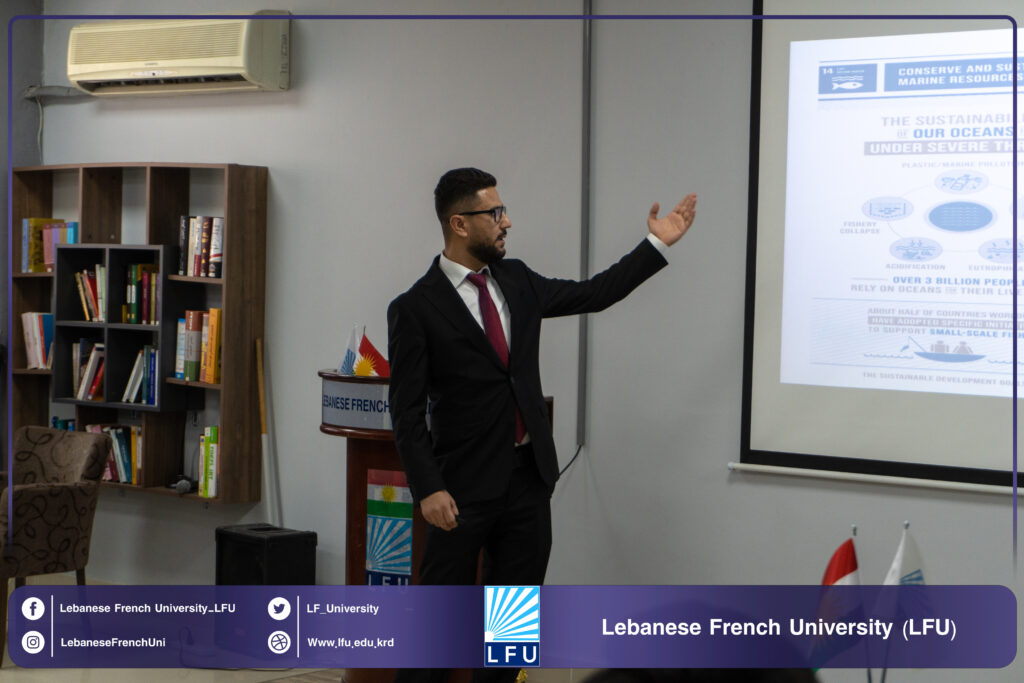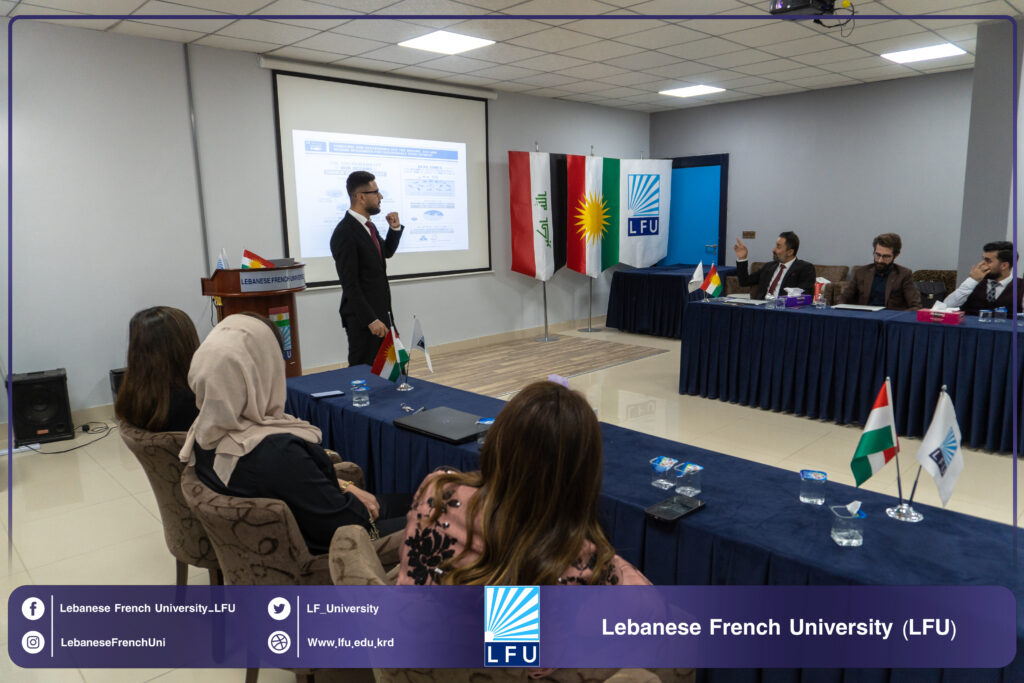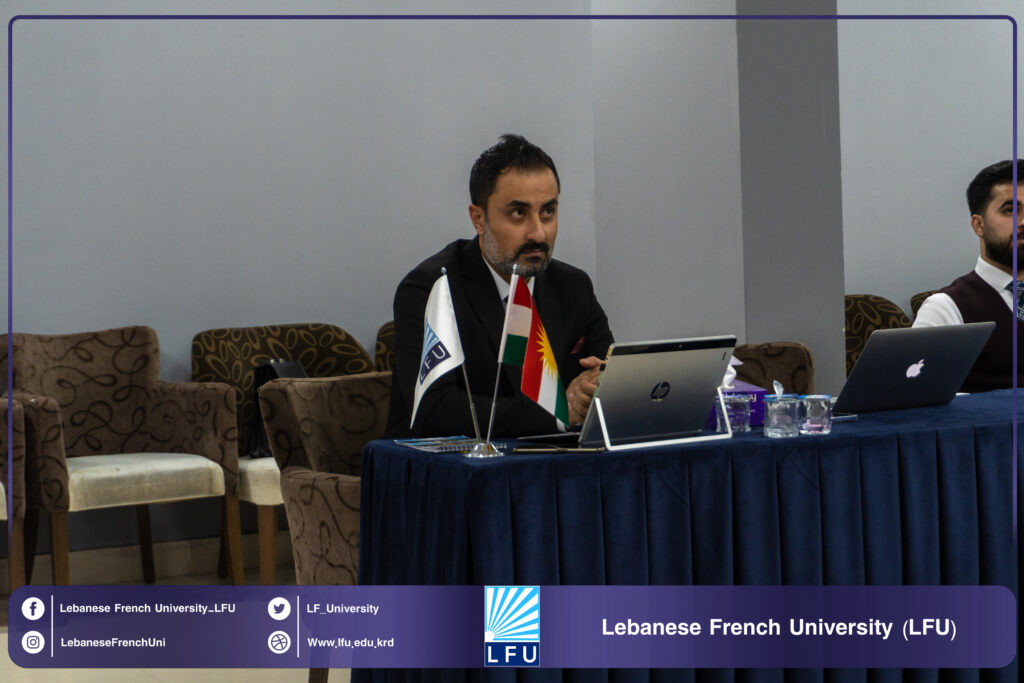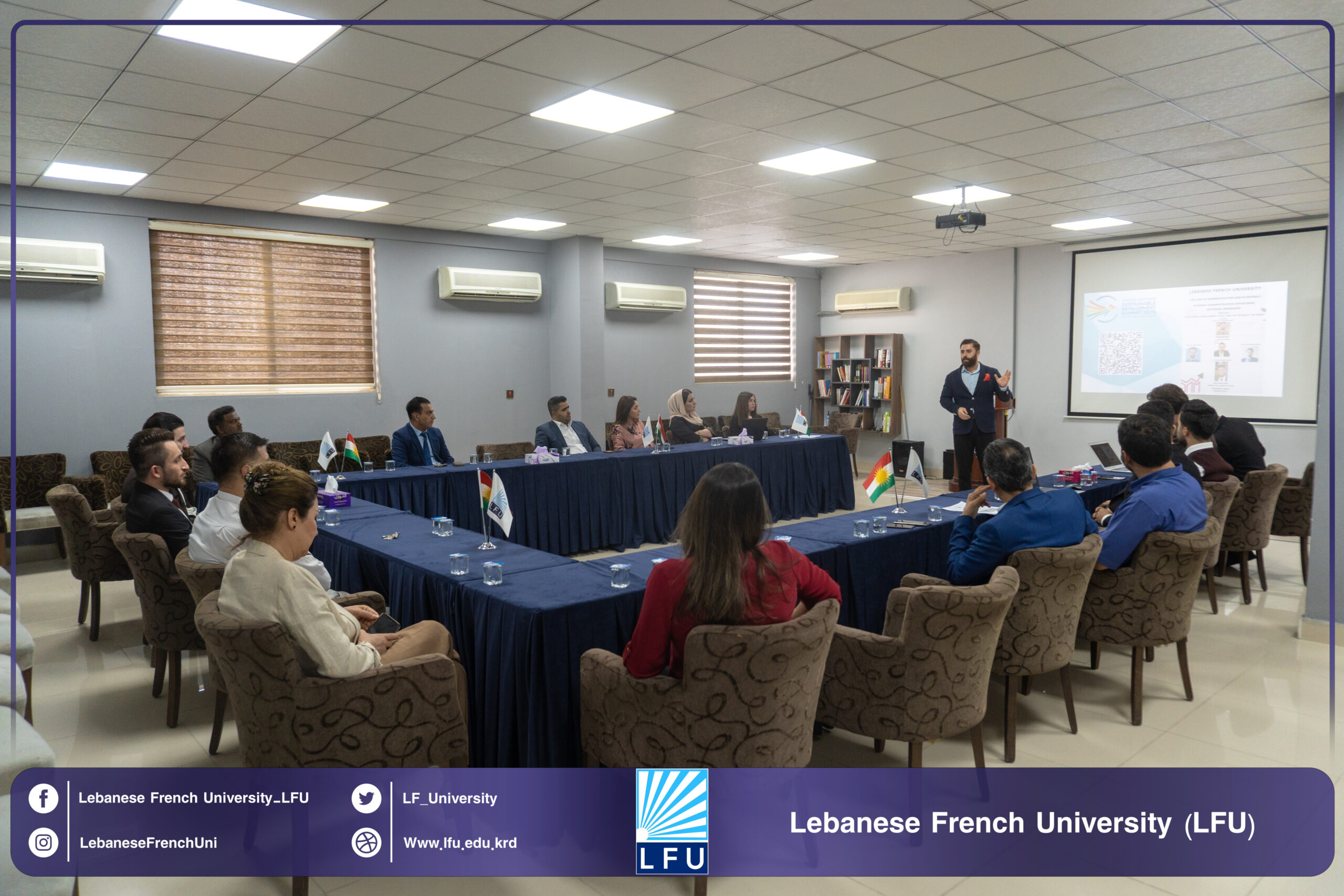On Sunday, 2 October 2022, the Department of Business Administration at the College of Administration and Economics organized a national workshop entitled “Sustainable Development Goals: the Future of the World”. The objectives of the workshop were explained to the audience at the beginning by Khowanas Saeed, the organizer of the workshop, and then the first panel of the workshop was presented by Dr.Nabaz Nawzad Abdullah, Dean of Administration and Economic College. Dr. Nabaz explained the concept of Sustainable Development and why sustainable development goals (SDGs) are important for the world. Then he explained five goals including No Poverty, Zero Hunger, Good Health and Well Being, Quality Education, and Gender Equality, and recommendations to achieve each goal, especially in Kurdistan Region. He provided data and development that has been made since 2015 and the expectations for 2030.
The second presenter, Taha Sheikh Omar, Lecturer at the department of Business Administration covered clean water and sanitation, affordable and clean energy, decent work and economic growth, and finally industry, innovation, and infrastructure. He provided examples and data on each goal and connected them to the current situation in Kurdistan Region.
The third presenter Ahmed Jawhar Mohammed, lecturer at the department of Legal Administration focused on reduced inequalities, sustainable cities and communities, responsible consumption and production, and climate action. He explained how climate has changed and how the world should be prepared for future climate challenges through sustainable cities and responsible consumption of food and other resources to preserve the future of the world.
The last presenter, Karkhi Khalid, Lecturer at the department of Business Administration presented the last four goals including life below water, life on land, peace, justice and strong institution, and partnerships for the goals. The presenter tried the history of life underwater, life on land, and how things have changed globally and negatively impact the future of the world if humans do not take necessary action through SDGs.
Presenters and participants discussed the SDGs and asked several questions. This part aimed to evaluate the Kurdistan Region’s strategy toward the implementation of SDGs and assessed the achievement and the problems that still exist in the region.
Outcomes:
At the end of this workshop, participants:
• Learned about 17 SDGs.
• Understood the future challenges facing the next generation.
• Understood how climate change, pollution, inequality, and food scarcity threat the next generation.
• Alarmed on the weakness of public institutions towards the achievement of SDGs.
• Decided on paper waste reduction and communicate digitally at the College of Administration and Economics, Lebanese French University.
• Decided to find an alternative for not using plastic bottles at the college of administration and economics, Lebanese French University.
• Recommended future gaps in relation to SDGs to share public awareness of the global changes.
Number of Participants: 21
